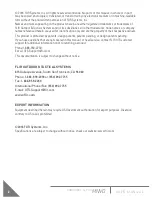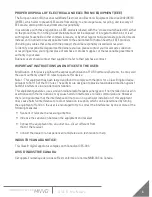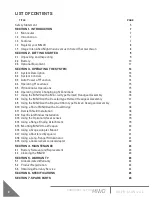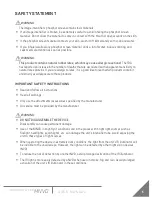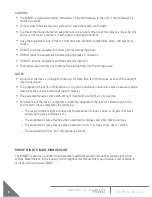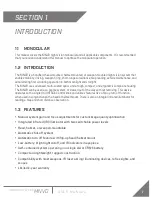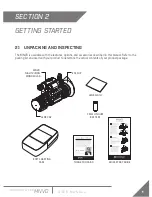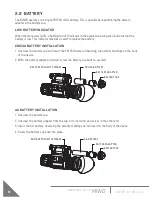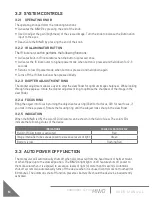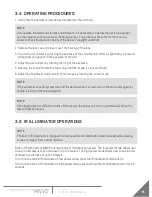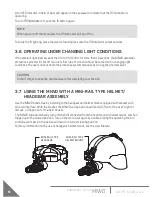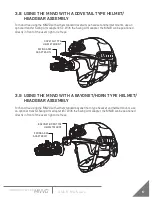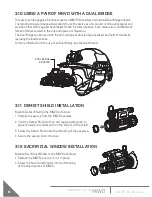
3
ARMASIGHT by FLIR
MNVD
U S E R M A N U A L
PROPER DISPOSAL OF ELECTRICAL AND ELECTRONIC EQUIPMENT (EEE)
The European Union (EU) has enacted Waste Electrical and Electronic Equipment Directive 2002/96/EC
(WEEE), which aims to prevent EEE waste from arising; to encourage reuse, recycling, and recovery of
EEE waste; and to promote environmental responsibility.
In accordance with these regulations, all EEE products labeled with the “crossed out wheeled bin” either
on the product itself or in the product literature must not be disposed of in regular rubbish bins, mixed
with regular household or other commercial waste, or by other regular municipal waste collection means.
Instead, and in order to prevent possible harm to the environment or human health, all EEE products
(including any cables that came with the product) should be responsibly discarded or recycled.
To identify a responsible disposal method where you live, please contact your local waste collection
or recycling service, your original place of purchase or product supplier, or the responsible government
authority in your area.
Business users should contact their supplier or refer to their purchase contract.
IMPORTANT INSTRUCTIONS AND NOTICES TO THE USER:
Modification of this device without the express authorization of FLIR Commercial Systems, Inc. may void
the user’s authority under FCC rules to operate this device.
Note 1: This equipment has been tested and found to comply with the limits for a Class B digital device,
pursuant to Part 15 of the FCC rules. These limits are designed to provide reasonable protection against
harmful interference in a residential installation.
This equipment generates, uses, and can radiate radio frequency energy and, if not installed and used in
accordance with the instructions, may cause harmful interference to radio communications. However,
there is no guarantee that the interference will not occur in a particular installation. If this equipment
does cause harmful interference to radio or television reception, which can be determined by turning
the equipment off and on, the user is encouraged to try to correct the interference by one or more of the
following measures:
• Reorient or relocate the receiving antenna
• Increase the separation between the equipment and receiver
• Connect the equipment into an outlet on a circuit different from
that of the receiver
• Consult the dealer or an experienced radio/television technician for help.
INDUSTRY CANADA NOTICE:
This Class B digital apparatus complies with Canadian ICES-003.
AVIS D’INDUSTRIE CANADA:
Cet appareil numérique de la classe B est conforme à la norme NMB-003 du Canada.


